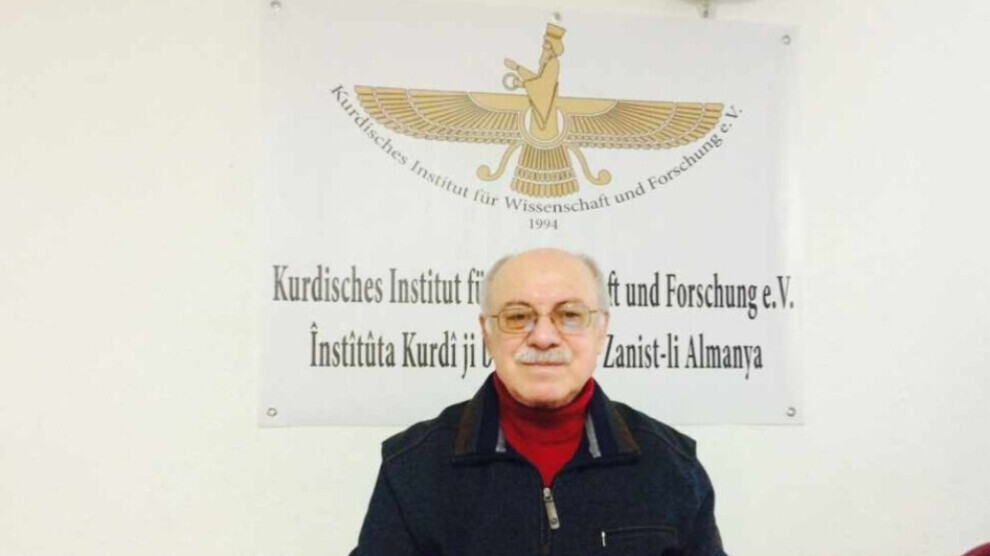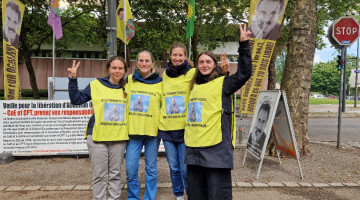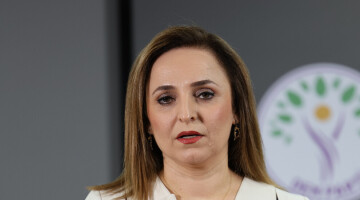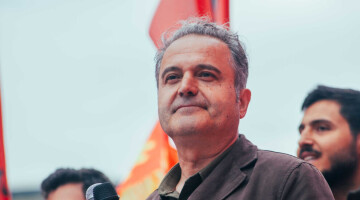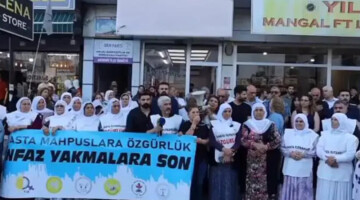When it comes to naming the people who initiated, pushed and decisively shaped the development and maintenance of the Kurdish language in exile, his name should not be missing: Fevzî Özmen.
The linguist and author was chair of the Kurdish Institute for Knowledge and Research and wrote textbooks on Kurdish grammar. He was also honorary chair of the Association of Kurdish Teachers (YMK) and a member of PEN, and also gave lessons in the Kurdish language himself.
Fevzî Özmen died at the weekend in Hagen at the age of 80 after a long, serious illness. “We are deeply saddened that an important language keeper of Kurdish has passed away,” said the Movement for Democratic Culture and Art (Tevgera Çand û Hunerê ya Democratîk, TEV-ÇAND).
Especially at a time when the Kurdish people are exposed to “unprecedented attacks,” the loss of Özmen hit his friends, companions and students even harder. “He deserves all of our respect for his commitment.”
Özmen came from the Serhed region in North Kurdistan. He was born in 1943 in the village of Şorax in Erzîrom-Oxlê (Erzirom-Çat) and studied business administration in Istanbul. After years of involvement in Kurdish political circles, he had to go into exile and had lived in Germany since 1993. Since then, he has persistently campaigned for the preservation of the Kurdish language. In recent decades, the Turkish state's authoritarian policy of assimilation and prohibition has succeeded in suppressing the Kurdish language in some Kurdish settlement areas. This created a lost generation in which parents still used their native language with their own parents, but not with their children.
TEV-ÇAND said: “Mamoste [teacher] Fevzî took on the fight to correct this serious development of the past decades. But he was not just a language teacher and researcher. Nor was he merely a defender of culture. Rather, Fevzî Özmen was a silent hero of the revolution against assimilation and ethnocide in Kurdistan. He taught hundreds of young people their native language to ensure that there would not be another lost generation. He also wrote literary works because he understood the preservation of literature as a cultural heritage. What always drove him in his work was the reality that resistance means life and a nation cannot exist without language and culture. His passion, his commitment and his voice will be missed by all of us.”

